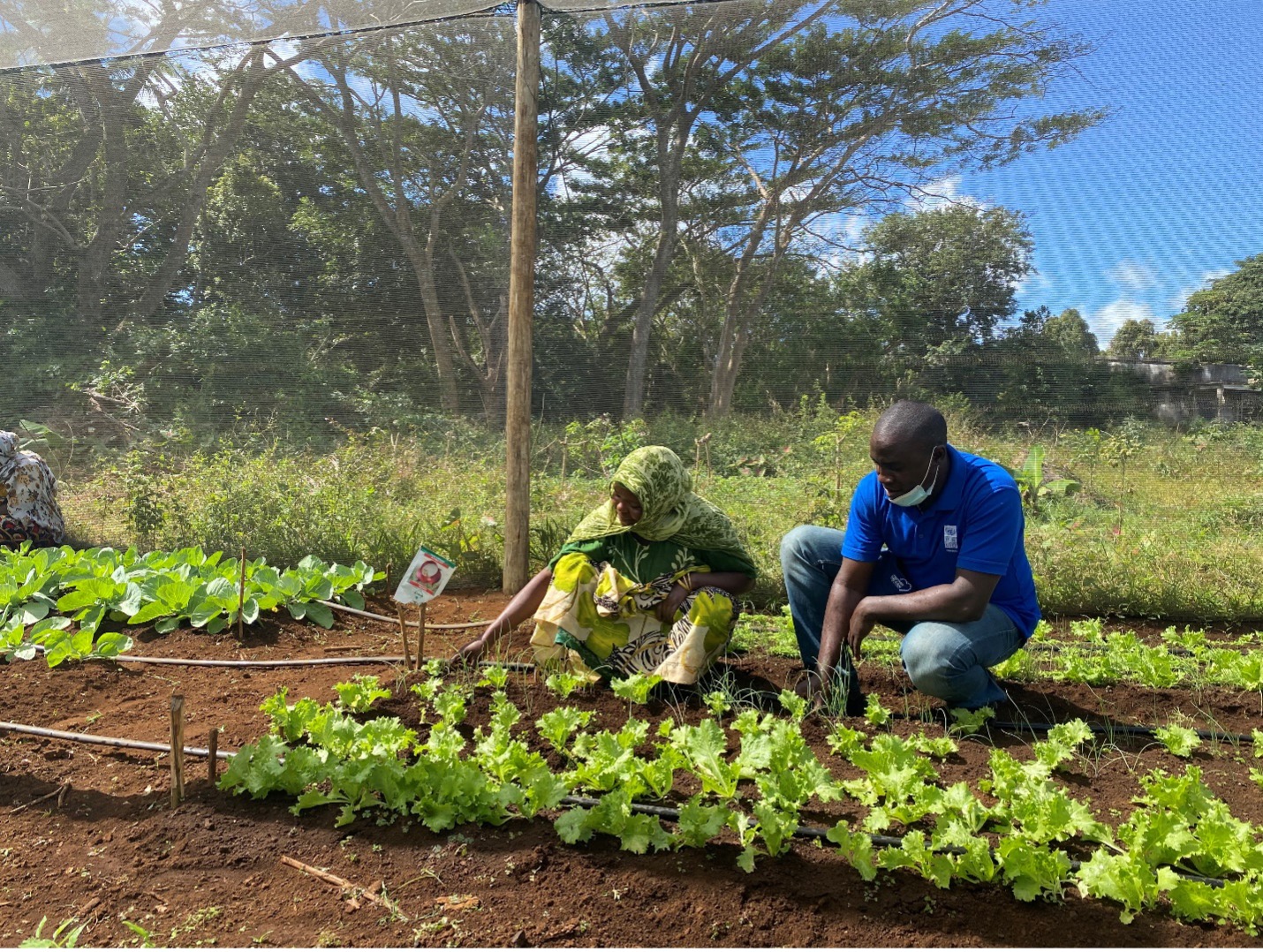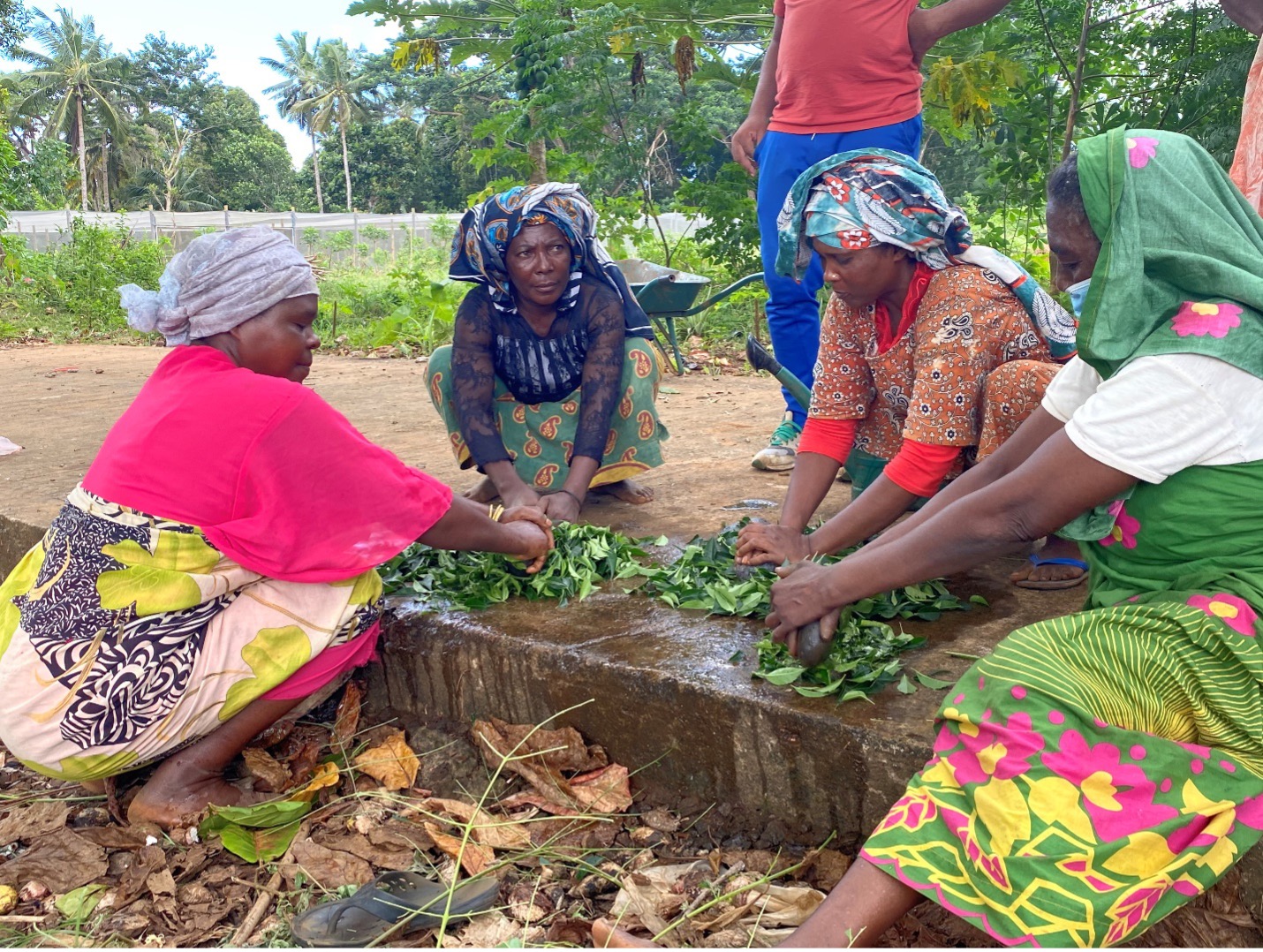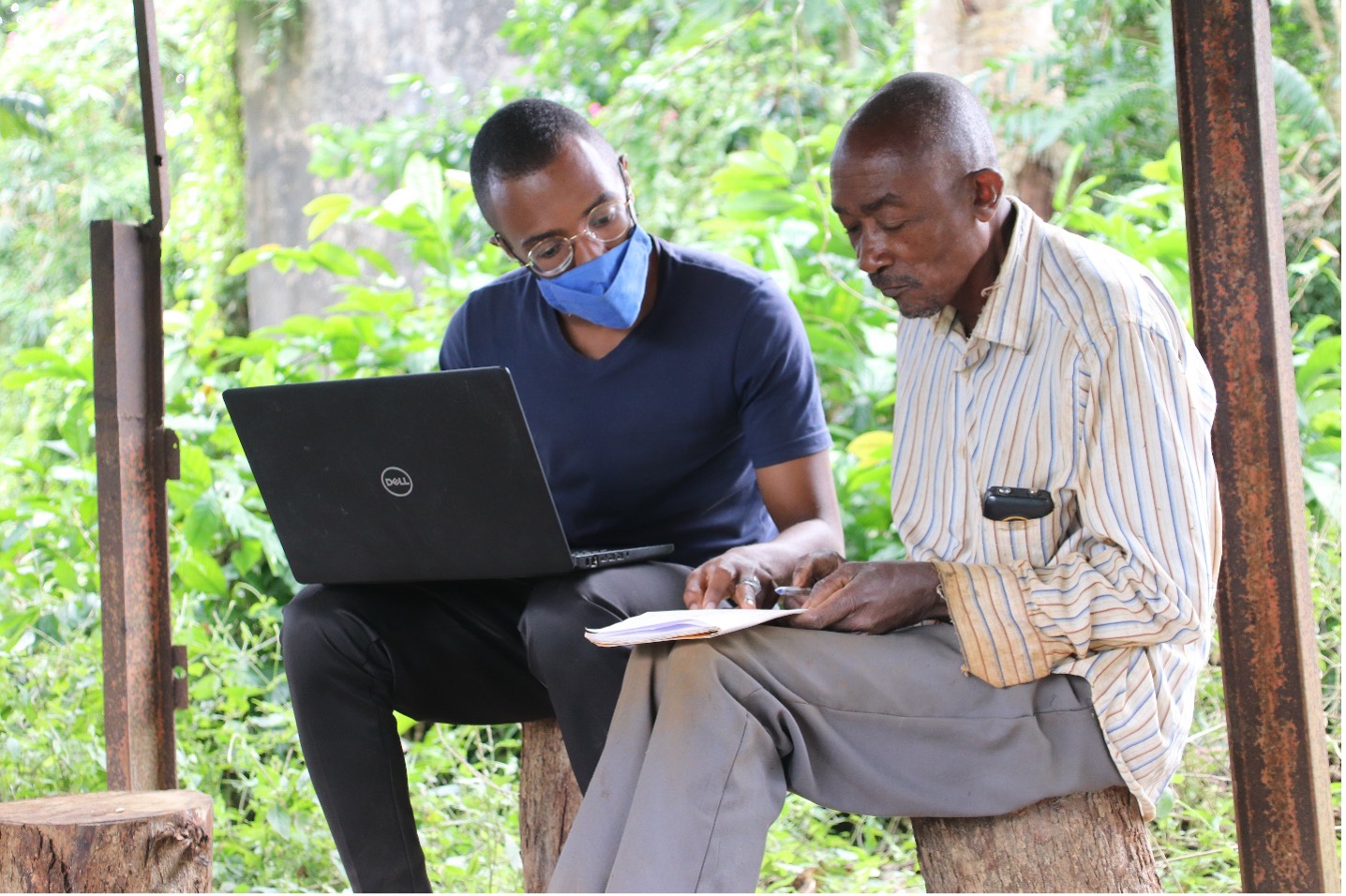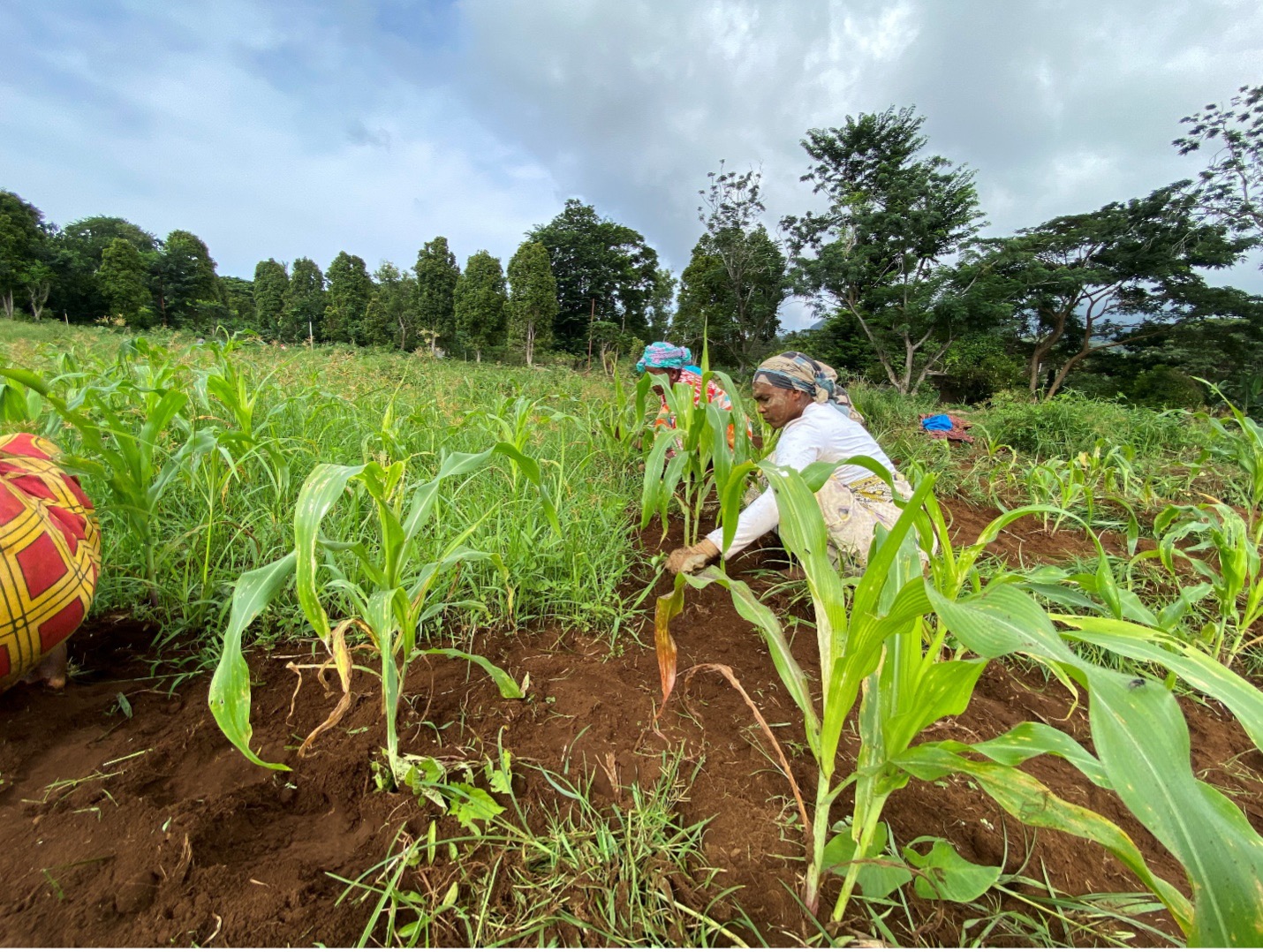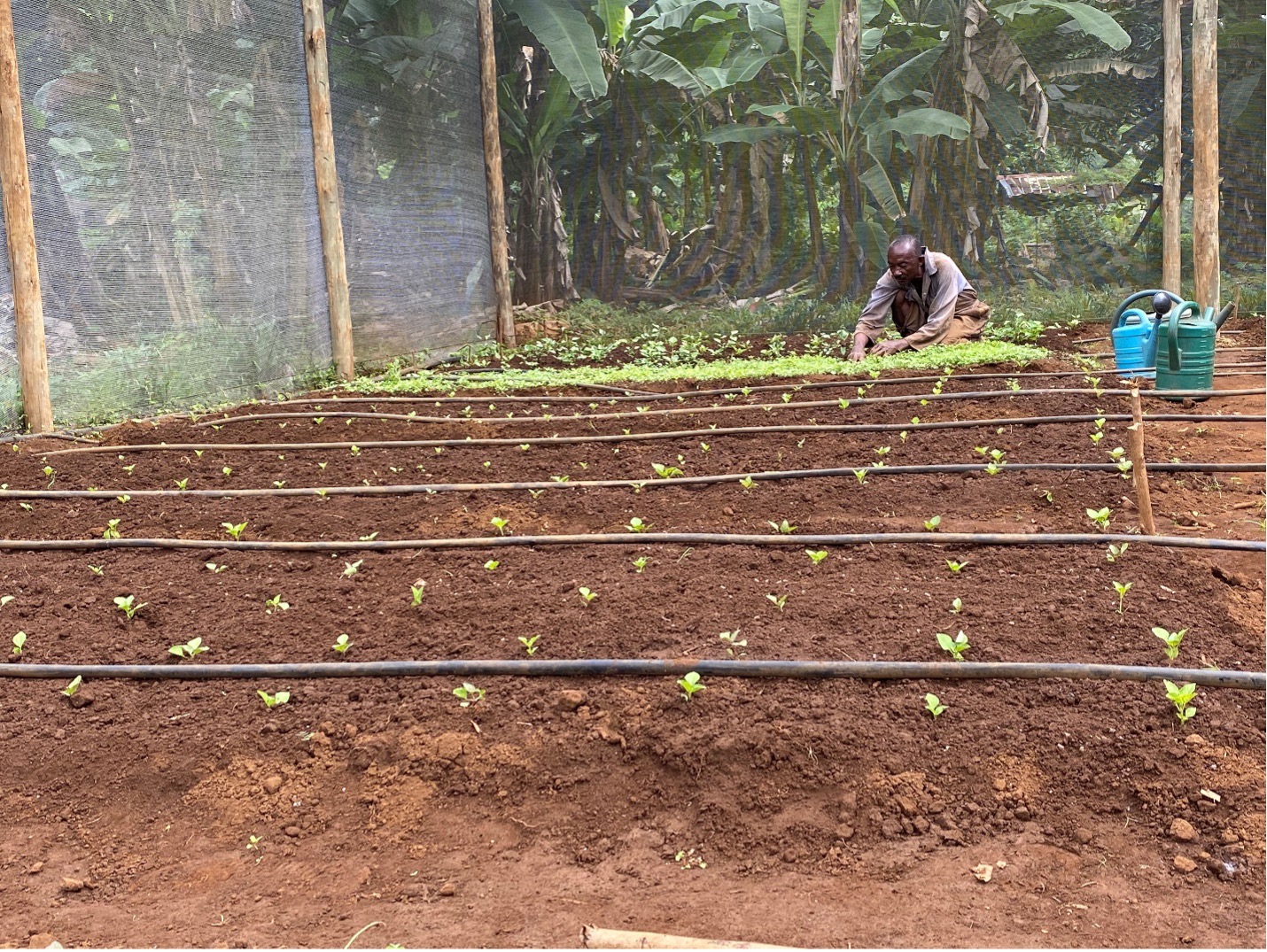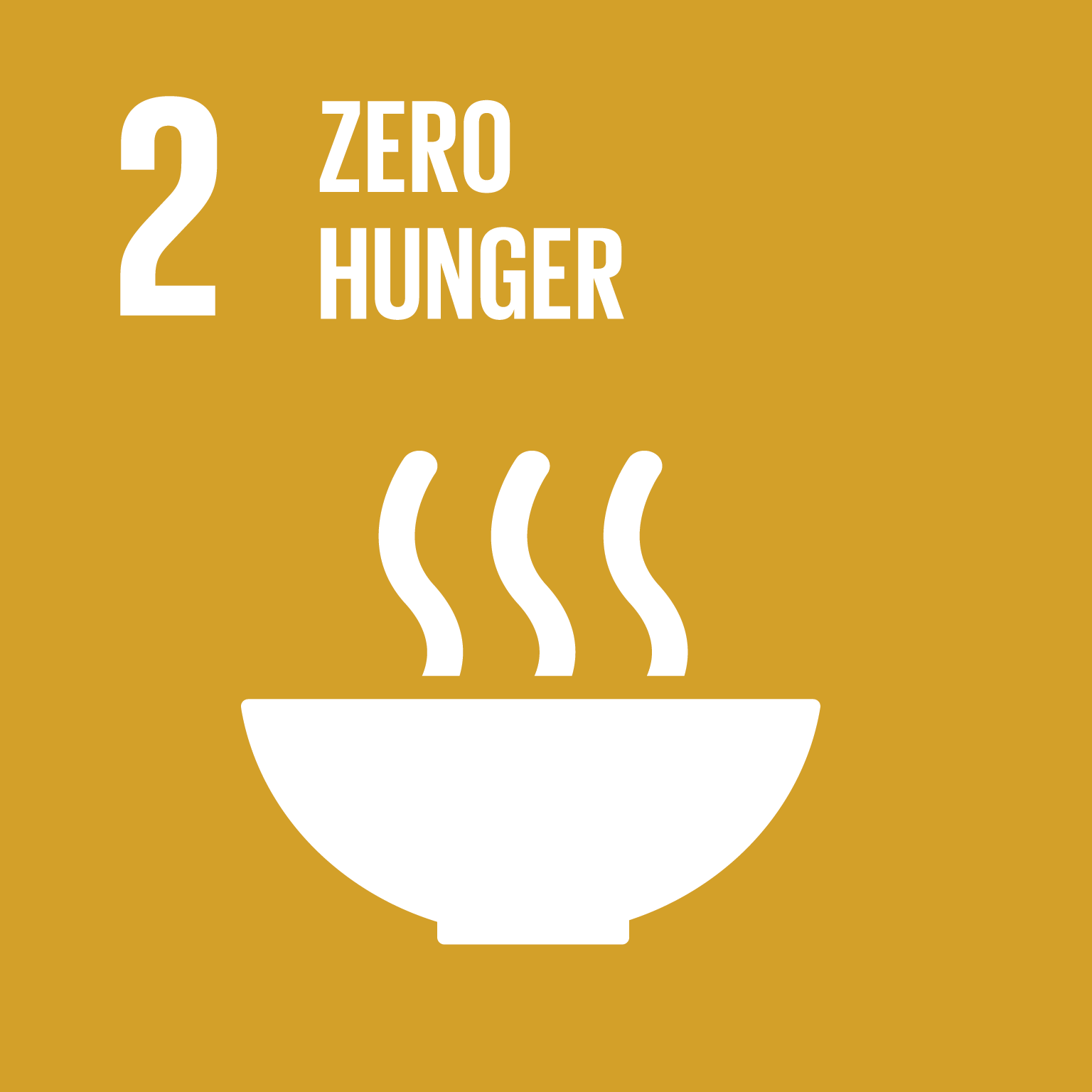 Enhancing Agricultural Capacity in the Union of the Comoros
Identifying the natural capital and unlocking the agricultural potential of Comoros
Enhancing Agricultural Capacity in the Union of the Comoros
Identifying the natural capital and unlocking the agricultural potential of Comoros

Challenges
Agricultural production in the Comoros faces major challenges. Although annual precipitation is relatively high at over 2,000 millimetres, insufficient reservoirs and dams mean that surface water for irrigation purposes is scarce in many parts of the country. This constrains food production during the dry season. Despite having good agricultural potential and a growing number of initiatives to promote it, food production remains hampered by low levels of mechanization, a lack of infrastructure, difficulties in transport between islands and foodstuff preservation techniques.
The country also has insufficient skills to handle post-harvests, which leads to huge post-harvest losses in the sector. Furthermore, available information on the country’s agricultural potential and soil capability was outdated, leading to inefficiency and haphazard techniques.
Towards a Solution
The government of the Comoros, in collaboration with the Agricultural Research Council (ARC) of South Africa and the United Nations Development Programme (UNDP), identified possible areas where assistance could be provided to address these challenges. A preliminary joint qualitative survey was conducted, which updated country’s Poverty Reduction and Growth Strategy document describing its macroeconomic, structural, and social policies.
Based on this preliminary work, the project “Enhancing the agricultural capacity in the Union of the Comoros” was developed to improve production conditions and added value of agricultural products, thus contributing to poverty reduction, as well as food and nutrition security of the population. The project’s objective is to adapt successful farming systems and agricultural practices, develop a crop model for production and support the added value chain, to be achieved through coordinated activities for enhanced soil fertility, selection of vegetable varieties, development of an irrigation system at the selected site of Mimbani on the island of Mohéli, and promotion of commercialization. The project is contributing to Sustainable Development Goals (SDGs) 1 (No Poverty), 2 (Zero Hunger), 12 (Responsible Consumption and Production) and 15 (Life on Land). It also contributes to the Istanbul Programme of Action (IPoA) Priority Areas 1 (Productive capacity) and Priority 2 (Agriculture, food security and rural development). This was achieved by establishing a pilot agricultural hub in a rural centre for economic development (CRDE) in the island of Mohéli, where organic agricultural practices were demonstrated to smallholder farmers.
The project has supported crop suitability analyses for 37 crops in 273 locations. Farmers were trained and introduced to organic agricultural techniques which significantly reduced the use of chemical fertilizers and pesticides. The organic farming school has brought together the indigenous knowledge of farmers and new practices based on accurate scientific data to improve agricultural production in Mohéli. Fifteen farmers were trained as tractor operators. Composting techniques were introduced, resulting in the establishment of 20 composting units producing an average of 450 kg of compost per unit. Additionally, an irrigation system was successfully established in Mibani, representing a key component of the project’s sustainability. It included the completion of construction of a 30-metre dam across the Mibani River, the installation of a pump station and a 1.2 km main water pipeline, the construction of a 480 m3 water reservoir, and the provision of 1.5 km of electrification and diesel-powered generators that will ensure an uninterrupted water supply for irrigation. Finally, 11 hectares of land were brought under a drip and sprinkler infield irrigation system. To increase crop and water productivity under semi-controlled conditions, the project supported the construction of a 1,500 m2 shade net structure. In order to protect equipment from the elements, a shed was also constructed for a tractor and implements. Finally, supported by UNDP and the National Research Institute for Agriculture, Fisheries and Environment (INRAPE), ARC developed a tool for data collection which will support the market strategy and market access for the agro-processing unit
This innovative infrastructure completely changed the lives of farmers working at the CRDE; they now produce crops throughout the year. The construction of the infrastructure was also a great opportunity for local engineers to build and strengthen their capacity. Provision of mechanization and infrastructure has imported new sets of skills now available in the country.
The agricultural learning hub continues to serve as a centre for teaching and demonstrating sustainable, modernized and commercial farming practices. The project collaborated with 1,140 farmers from eight villages, 36 per cent of whom are women, while 10 per cent are youths.
Capacity building of local experts and smallholder farmers was an essential cornerstone for the project’s success and sustainability. Irrigation training for local experts was conducted in South Africa. This ensured that skills were available on each island to design and run irrigation infrastructures. INRAPE was part of all training module designs, and translated training materials into local dialects to ensure that contents and expertise were better assimilated. Another key component was the promotion of locally-made solutions. The project promoted the production and use of compost, biofertilizer and other natural products replacing most of the chemicals usually used by farmers. Lead farmers visited other villages and taught them how to make compost and neem-based biopesticides so they too can keep teaching and passing on this knowledge. The project adopted a “train-the-trainer” approach to ensure its sustainability.
A request will be made for the next phases of the project so that the Comoros can continue with the same approach and benefit from the experience of India and Brazil in agriculture.
It is important to mention that replicability goes along with sustainability. A key part of this process is that expertise and training are being strengthened on all three islands. The project ensured that all activities successfully implemented in Mohéli are replicated on the two other islands. The objective was to ensure that the same activities are implemented successfully under different climatic and other organizational conditions and circumstances. The same crops will be introduced and evaluated in other regions in Mohéli, on Grande Comore and Anjouan so comparisons can be made. The adaptability of the crops can be then approved on a broader scale, at a national level.
Contact Information
Countries involved
Supported by
Implementing Entities
Project Status
Project Period
Primary SDG
Secondary SDGs
Similar Solutions
| NAME OF SOLUTION | Countries | SDG | Project Status | |
|---|---|---|---|---|
Accelerating the Transformational Shift to a Low-Carbon Economy in Mauritius Towards supplying 35 percent of the country’s energy needs with renewables by 2025 |
Brazil, Comoros, India, South Africa | 05 - Gender Equality 09 - Industry, Innovation and Infrastructure 13 - Climate Action | Ongoing | View Details |
Adaptation for Smallholder Agriculture Programme Establishing better working conditions for smallholder farmers through the use of good practices and new technologies |
Brazil, Comoros, India, South Africa | 08 - Decent Work and Economic Growth 11 - Sustainable Cities and Communities 13 - Climate Action 15 - Life on Land | Ongoing | View Details |
Adaptation of 3PA to Urban and Displacement Settings Using South-South and Triangular Cooperation in World Food Programme Three-Pronged Approach capacity strengthening through cross-learning initiatives |
Brazil, Comoros, India, South Africa | 02 - Zero Hunger | Completed | View Details |
ADAPT PLAN in Malawi |
Brazil, Comoros, India, South Africa | 01 - No Poverty 05 - Gender Equality 11 - Sustainable Cities and Communities | Ongoing | View Details |
Addressing Racial and Ethnicity-based Discrimination and Strengthening the Protection of Rural Afro-descendants UNFPA supports data disaggregation as a tool to fight racism and ethnic discrimination |
Brazil, Comoros, India, South Africa | 01 - No Poverty 02 - Zero Hunger 03 - Good Health and Well-being 05 - Gender Equality 06 - Clean Water and Sanitation 11 - Sustainable Cities and Communities 16 - Peace and Justice Strong Institutions | Ongoing | View Details |
